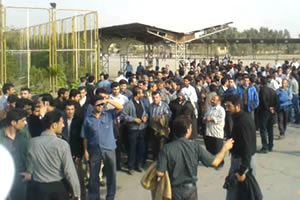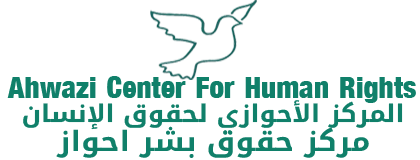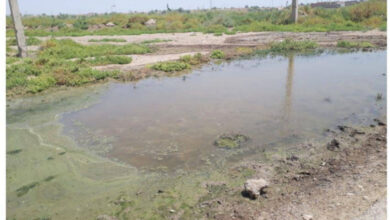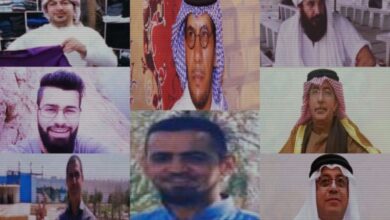Report exposes widespread job discrimination exercised against Ahwazi Arab people

The ruthless oppression of Ahwazi Arabs and the injustices inflicted upon them are apparently endless.
The Ahwazi Arab people are facing constant explicit discrimination based on ethnicity at every field, particularly in the employment process.
According to the media of the Iranian occupying state, MEHR News Agency, over 300,000 non-Arab migrant workers currently live and work across the al-Ahwaz region, where they live in specially constructed, ethnically homogeneous settlements. Arabs are not allowed in these settlements, which grant their residents all the rights and facilities denied to the Ahwazi people.
These massive numbers of migrants, a quarter-million in total, are being deliberately resettled in the region by the regime as part of a policy to change its demographic composition in favour of Persians. Meanwhile, the indigenous Arabs are left in conditions of destitution, with massive unemployment, even though their region is the home of over 90 percent of the oil and gas wealth claimed by the Tehran regime.
The Al-Ahwaz region has tremendous opportunities for employment. There are several large companies in various Ahwazi areas, and these could provide decent jobs for the local people. Unfortunately, a significant number of positions in these companies are reserved for non-indigenous workers, leaving thousands of Ahwazi young men no other option than to open their voices in protest, to challenge the lack of fair employment opportunities.
According to the Iranian official statistics, the overall unemployment rate among Ahwazi people stood at 40 % however the Ahwazi labour activists claim it is higher than 50% for Ahwazi men and 80% for Ahwazi women who face double oppression for both their race and their gender.
The current and previous governments did not allocate even 2% of the oil revenues, as they had promised to the people, to create jobs and fight unemployment as well as allotting real funds for reconstruction projects.
The following is a heart-breaking story of highly educated Ahwazi young man but subject to racial discrimination:
Twenty-nine-year-old Adnan is one of innumerable jobless young Ahwazi men. Although he has a Bachelor’s Degree in Business Administration from the University of Abadan, he has been sitting at home unemployed for the last five years.
He has applied for work many times, but all of his efforts have been in vain, and he feels hopeless. In an interview with an Ahwazi labour activist who wished to remain anonymous for security reasons, Adnan burst into tears as he explained: “I am living aimlessly, and my life is becoming a cycle of daily pressure. I am in complete despair. A couple of times I have considered killing myself, only avoiding suicide in the final moment”.
He went on; “I spend all my days applying for jobs in many companies, the last time I remember I went to an oil refinery company, and asked if there is any upcoming recruitment, the response; one very young man with Isfahani accent (Persian accent) said what your last name is? I told him, it is Kaabi, my last name shows me I am Ahwazi Arab, he said oh no I guessed you are Arab from your accent, then with a humiliating smile said ok go and leave your phone number we will inform you if we want labour force, the same answer that I received till to date.
He added “what I want to say is that Arabic last names and Arabic accent are very typical ethnic stereotypes used to reject Ahwazis from jobs”. “Of course, other excuses such as lack of previous work experience and lack of practical training are adopted to deny the Ahwazi local people from getting jobs. On the contrary, those who are dominant, are very young, and have no prior work experience or training, as a matter of fact, they have highest priority because of their Persian ethnicity”.
For years, Iran has been oppressing the Ahwazi Arab people through intimidation, mass arrests, torture, starvation, denial of employment, and the mass execution of Ahwazi civilians.
This history includes a history of exploitation of the wealth and natural resources of Ahwaz, in particular, the natural gas and oil that are being extracted without discernible economic benefit for the Ahwazi Arab people. The Persian state’s policies have crippled the majority of the Ahwazi Arab population. An estimated 90 percent of Ahwazi households live below the poverty line, even as they live on a sea of oil and gas, and mineral resources that have been exploited and stolen since 1925.
By: Rahim Hamid
Ahwazi Centre for Human Right
20-06-2015




